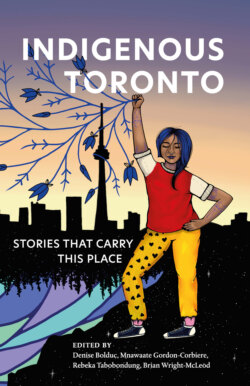Читать книгу Indigenous Toronto - Группа авторов - Страница 13
На сайте Литреса книга снята с продажи.
LAND CLAIMS POLICIES
ОглавлениеPrior to 1990, First Nations were not able to submit pre-Confederation land claims. This made it difficult to find resolutions, as most if not all of the treaties were signed prior to 1867, when Upper and Lower Canada joined to form a confederation. The only option was to take the federal government to court.
A map of the Toronto Purchase (1860).
That kind of legal action rarely happened, as First Nations did not and still today do not have the abundance of money needed to hire lawyers and pursue court challenges. It was not until 1972 that the federal government began to fund the First Nations to conduct research into land claims. In order to flow money for such research, First Nations set up ‘political territorial organizations’ known as the Association of Iroquois and Allied Indians (AIAI) and the Union of Ontario Indians, Treaty #3 and Treaty #9.
In 1982, with the new Constitution Act, the federal government began to rework the land-claims policy. Specific claims involved the federal government’s failure to honour the treaties, agreements, and legal obligations. But the onus was on the First Nations to prove that the federal government had ‘a lawful obligation.’
First Nations had to fit their claims into four boxes:
The non-fulfillment of a treaty or agreement between Indians and the Crown.
A breach of an obligation arising out of the Indian Act or other statutory obligation.
The mishandling of Indian funds or assets by government administrations.
An illegal disposition of Indian land.
The policy also recognized claims considered to be ‘beyond lawful obligation,’ based on the following criteria:
Failure to compensate a band for reserve land taken or damaged under government authority. (The example given is paying less than market value or nothing for land taken by the government in a legal surrender.)
Fraud by federal employees in connection with the purchase or sale of Indian land.
Specific claims are for monetary compensation only. The federal policy ‘Outstanding Business’ clearly states that land will not be given back and third parties will not be displaced.
